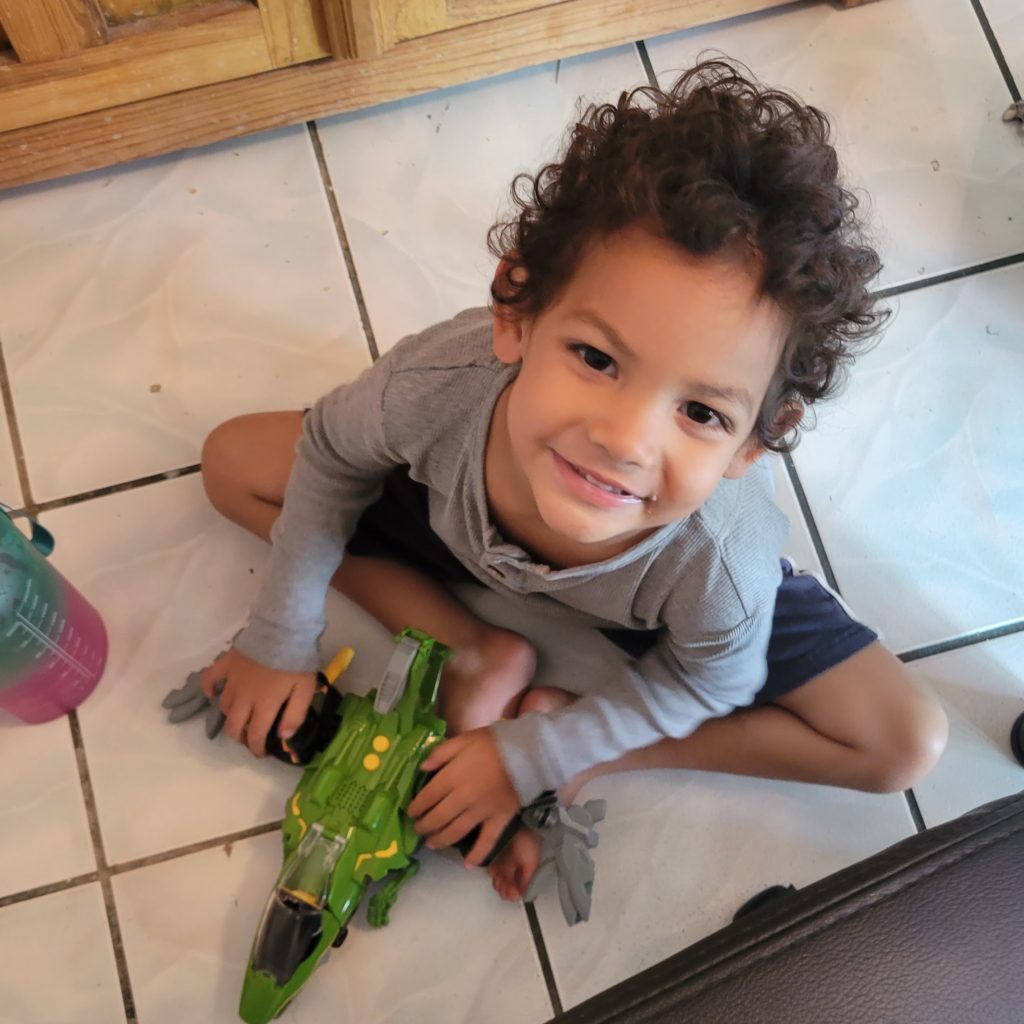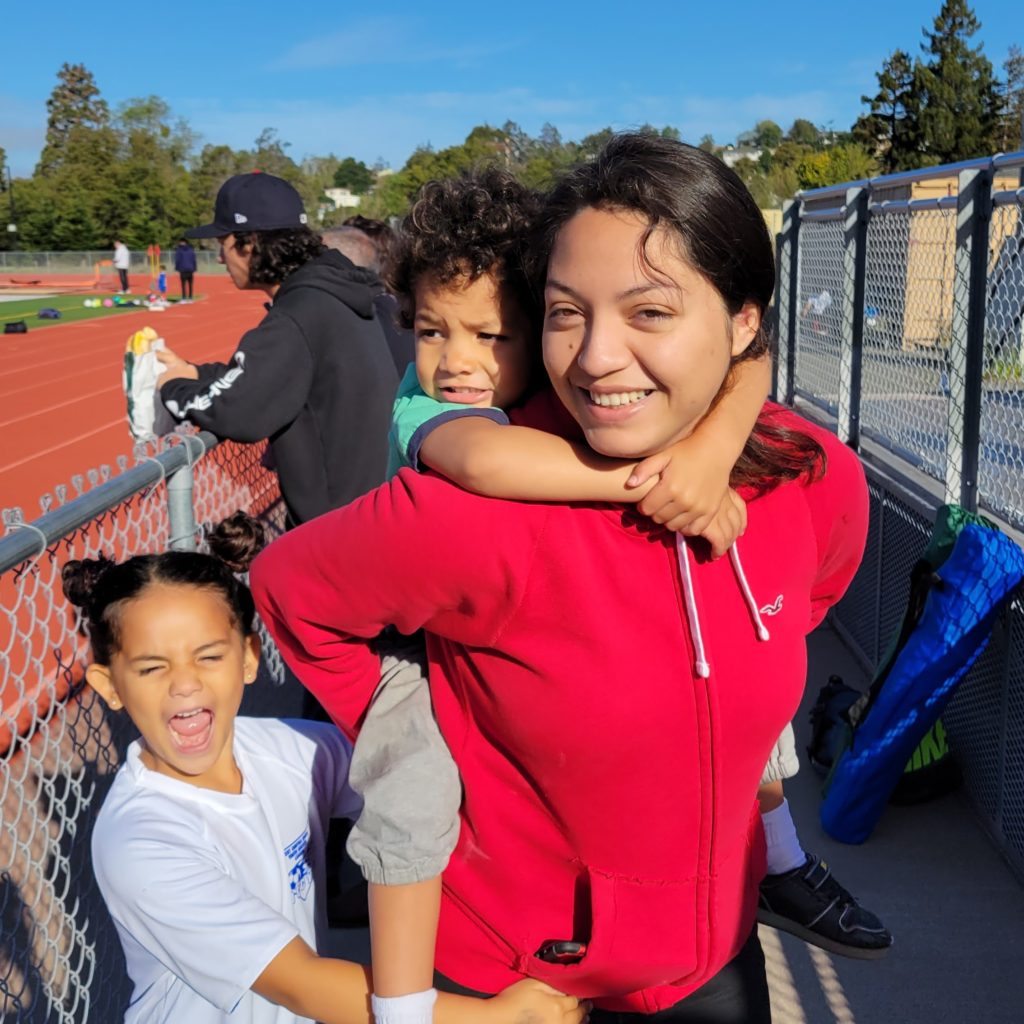Children, obey your parents in the Lord, for this is right. “Honor your father and mother” (this is the first commandment with a promise), “that it may go well with you and that you may live long in the land.” Fathers, do not provoke your children to anger, but bring them up in the discipline and instruction of the Lord.
Ephesians 6:1-4
For God commanded, ‘Honor your father and your mother,’ and, ‘Whoever reviles father or mother must surely die.’
Matthew 15:4
So in everything, do to others what you would have them do to you, for this sums up the Law and the Prophets.
Matthew 7:12
The Bible commands children to be obedient to their parents, and this can be construed as requiring children to obey immediately the first time the command is issued. We promote a culture of obedience in our home, but first time obedience is not the gold standard in our home. Cooperation and teamwork are the gold standard.
Why Not First Time Obedience?
I don’t want to raise children who question nothing. I am a rule follower by nature. My mom used to tell me stories about not wanting to get even close to breaking rules, and I’m still that way. It made me really good in school but not a great critical thinker. If my kids have questions about the rules, I want them to speak up. People handle this differently. I know some families that require obedience first and then questions. I am happy to answer questions before the task gets done. I want to encourage questions and answer-seeking.

Also, being distracted is different than being disobedient. I can give Eliam an instruction on one side of the hallway, and he has forgotten by the time he gets to the other end. Maybe a block was in the middle of the floor, so he sat down to play with it and never got to his room to finish getting dressed, despite my very specific instructions to go get a shirt on. It isn’t obedience that we need to work on because he obediently went in the direction of his bedroom – it is attention. And there are many lessons and activities that we can do to improve his attention, but punishing him for “disobeying” would be both irrelevant and counterproductive.
Teaching self denial requires more consistent training than simply requiring blind obedience. Obedience out of fear of punishment is likely to only work for as long as the consequences escalate with age.
How do we promote a culture of cooperation and teamwork?
Lessons and Practice
We do lessons on obedience. I use Simply Charlotte Mason’s Laying Down the Rails to do lessons on habits, including obedience. (This is also how we work on attention.) We talk about the importance of obedience and following instructions.
The word “Danger” means something very different than the word “Stop.” I use the word “stop” all the time, especially with Finiasi. “Stop playing with that.” “Stop touching that.” “Stop playing ball in the house.” As I use it more and more often, it loses its potency. When I need them to stop immediately because it is a safety issue, I shout “Danger!” and all the kids know that they must stop immediately.
Ask Clearly and Kindly
I ensure that I ask clearly and that they have heard me. To avoid confusion, I do my best to get down on their level and give them instructions. The least effective way to ask my kids for help is to yell instructions from the other room. That usually leads to yelling again, a third time, and then venting my frustration that no one was listening. But it’s likely that they didn’t hear me the first few times or didn’t process the information because they were absorbed in an activity. When I don’t take the time to ensure they heard and understood the instructions, I am inviting conflict into our home.
I ask with a smile. It is hard to overestimate what a difference this makes in the spirit of cooperation around our house. It can feel like there is so much going on, and in stressful times, I want the kids to simply do what I ask them to do. Then I remember how encouraging it is when I walk into the house after having been gone for a while, and Fin shouts excitement at my return and tackle hugs my legs. A smile makes all the difference. When I kneel down to look them in the eye and then smile, I almost always get a smile in return. After that, I give the instructions and the level of cooperation is noticeably higher.

Welcome Interaction
The children have the right to ask for more time or to ask for help. For example, if I ask them to change the laundry, they can say, “Can I do it when we finish this round?” That is frequently my response to them. They ask if I can help, and I tell them as soon as I am done with this message, this task, or this meeting. I expect them to be patient while I complete it. I reciprocate with the same patience. They are allowed to finish the game, the episode, the craft before they have to get up and complete the task. In this way, I respect my children in the same way I ask them to respect me.
They have the right to say that they don’t want to. Culturally, it can damage our pride when we ask our children to do something and they say that they don’t want to. It then becomes a battle of wills because as parents we “feel disrespected.” In reality, our children likely didn’t intend to be disrespectful. They were simply saying that they didn’t want to do what they were asked. There are many times that I don’t want to do what I’m asked. And if we phrase our request as a question, we need to accept the answer. For example:
Scenario 1
Parent: Can you please go switch the laundry?
Child: I don’t want to.
Parent: You have to do it because I said so. (The parent didn’t say so. The parent asked, which is different. This can be confusing when we phrase it as a question but it is actually a command. If we ask them, we have to accept their answer.)
Scenario 2
Parent: I need you to go change the laundry.
Child: I don’t want to.
Parent: I understand that. There are many times I don’t want to as well, but this time is not a choice. When you finish this game, please go change the laundry.
Obviously this is oversimplifying the interactions, but it provides a glimpse into the way that children can perceive these conversations. My kids are generally helpful and willing, so on the off days that they don’t want to do it for any number of reasons, there is a lot of grace in my requests. Some parents may say that this encourages laziness or disrespect, and that may be true. But I appreciate when people have mercy with me on days that I’m not feeling my best, and I try to extend that mercy to my children as well. It comes back to treating my children the way I would like to be treated.

Appropriate Consequences
When I have told them children to stop doing something and they continue to do it, I follow through with consequences at that moment. If I told them to take the ball outside because it is not an inside toy and they continue to throw the ball in the house, I take away the ball. I am intentional about not making empty threats. This teaches my kids that I don’t mean what I say. There have been times where I took away a trip that my daughter was looking forward to or left the park immediately even though I wanted to stay and relax. If I tell my children that a particular action will result in a specific consequence, I need to follow through with that.
A side note to that is when we say something in anger that we don’t mean, we need to own up to that honestly. “If you keep making so much noise, I’m going to throw all your toys away!” Unless you plan to get rid of all the kids’ toys, you need to come back in a moment of calm and say something to the effect of “I said that when I was angry. I didn’t mean it, and I shouldn’t threaten to do things just to hurt your feelings.”
Gratitude
I demonstrate gratitude for their help. I intentionally thank my husband when he does things like cook dinner, wash the dishes, or clean the bathroom. I want to model gratitude to my kids. It is just as important for me to thank them for their contributions to the household – putting their dishes in the sink, letting a sibling take a turn before them, sharing out of kindness instead of compulsion.
I want to include the necessary disclaimer that these are all my best case scenarios. I fail at this more times than I would like to admit. This is how I try to promote cooperation in our household, and I apologize to the kids when I miss the mark. But I have found this method more effective for building connection in our relationships than requiring blind obedience and letting my pride blind me to the other options.